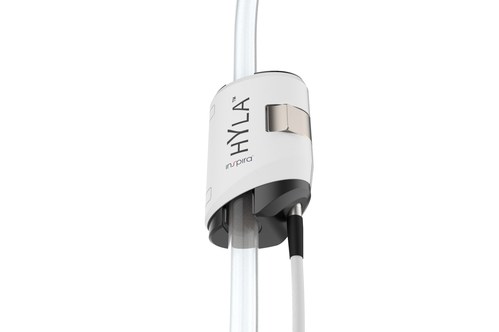24/7 Market News – (NASDAQ: IINN) INSPIRA TECHNOLOGIES shares are surging up this morning more than 60% as traders digest this morning’s news.
Optical sensor based on machine-learning algorithms
The non-invasive HYLA blood sensor is being developed by a team of cyber-warfare specialists who formerly served in the Israeli Defense Forces’ elite cyber-attack special forces. The HYLA blood sensor is being designed as a new platform based on key technologies being developed for Inspira’s ART™ system, designed to reduce the need for invasive mechanical ventilation. Like the ART system, the HYLA blood sensor is designed to minimize the need for invasive medical procedures with the intention of reducing risks, complications and costs.
Expanding Market Growth Opportunities
The HYLA™ non-invasive blood sensor is attached to the outer walls of a tube that has blood flowing through it. The HYLA blood sensor may have broad application potential, benefiting patients undergoing procedures including intensive care unit (ICU) monitoring (approximately 40% of patients have a standard arterial line), Invasive Mechanical Ventilation, Extracorporeal Membrane Oxygenation (ECMO), Dialysis and Cardiopulmonary bypass. Targeted patient populations can potentially include those suffering from acute respiratory failure, cardiac failure, pneumonia, acute kidney injury (AKI), as well as patients undergoing open-heart surgery.
Real-time patient monitoring can potentially save lives
Currently, in order to identify changes in a patient’s medical condition, frequent invasive blood tests are needed. As a non-invasive real-time blood sensor, the HYLA is expected to reduce the need for frequent invasive blood tests.
The HYLA blood sensor is expected to continuously measure several key indicators such as the levels of partial oxygen and carbon dioxide pressures, known to be precise indicators of health disorders and patient deterioration.
Dagi Ben-Noon, Inspira™ Technologies’ Chief Executive Officer, stated:
“Inspira Technologies has set out to change the way we monitor patient health. Today, hospital patients are reliant on physicians manually monitoring their health condition with invasive blood tests, as much as several times a day. We believe that the HYLA blood sensor has the potential to change patient experience and outcomes, through the non-invasive blood sensor, that is intended to perform real-time and continuous blood monitoring, with the intention of alerting physicians of changes in a patient’s clinical condition that could potentially save lives.”
This technology has not been tested or used in humans and is subject to regulatory approval.


